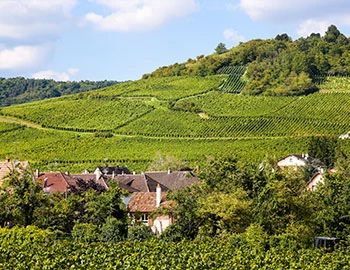
Château Calon-Ségur 2018
AC Saint-Estèphe 3ème Cru classé, 750 ml

| Grape variety: | Cabernet Sauvignon, Merlot, Cabernet Franc |
| Producer: | Château Calon-Ségur |
| Origin: | France / Bordeaux / St-Estèphe |
| Other bottle sizes: | |
| Other vintages: |
Description
Robert Parker, The Wine Spectator (Lisa Perrotti-Brown) writes about the vintage 2018: "The 2018 Calon-Ségur is blended of 65% Cabernet Sauvignon, 17% Merlot, 15% Cabernet Franc and 3% Petit Verdot (14.9% alcohol). It is anticipated to age for 20 months in barriques, 100% new. Deep garnet-purple colored, it needs just a little coaxing before it reveals seductive notes of baked cherries, warm cassis, licorice and smoked meats with nuances of hoisin, camphor, Chinese five spice and dried roses with a waft of cardamom. Full-bodied and completely packed with concentrated black fruit and spice layers, it has a firm frame of grainy tannins and a wicked backbone of freshness giving an energetic lift to the very long finish. There's lots of brightness coming from the Cabernet Franc component in here, but it is nonetheless a decadent expression."
Attributes
| Origin: | France / Bordeaux / St-Estèphe |
| Grape variety: | Cabernet Sauvignon, Merlot, Cabernet Franc |
| Ripening potential: | 8 to 30 years |
| Drinking temperature: | 16 to 18 °C |
| Food Pairing: | Wild specialities, Roast veal with morel sauce |
| Volume: | 15.0 % |
| Note: | Contains sulphites |
Cabernet Franc
Forefather of the Bordeaux varieties
The Cabernet Franc is one of the oldest varieties of Bordelais and a parent of three other red grapes in the Bordeaux assortment: Cabernet Sauvignon, Merlot and Carmenère. It is distinguished by its complex, flavourful bouquet of raspberry, graphite, violet, liquorice and white pepper. In addition, it presents round, crisp tannins which turn out less strongly than those of Cabernet Sauvignon. While the Cabernet Franc always appears as part of a blend in Bordeaux, it is pressed alone on the Loire. The most renowned appellations are Chinon and Bourgueil. Incidentally, the Cabernet originates not in Bordeaux but in the Spanish Basque Country. Cabernet owes its name to the Latin “carbon”, meaning black.
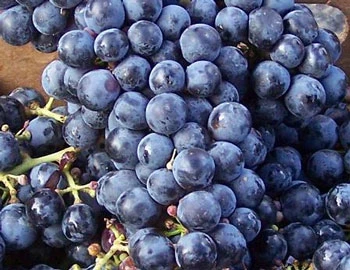
Cabernet Sauvignon
The backbone of Bordeaux
The Cabernet Sauvignon gives the Bordeaux its backbone, yielding deep violet wines with powerful tannins and endless ripening potential. It is the top dog in Médoc, and is placed in all five premier crus of Bordelais. When young, it often appears strict and unapproachable, but with advancing years, its tannins round off. It is wonderfully velvety, and yet always maintains its freshness. Typical flavours include cassis, graphite and cedar. Wherever Cabernet Sauvignon is found, Merlot is not far away. It complements the robust structure of Cabernet with softness, fruit and richness. The Cabernet Sauvignon is the most-exported vine in the world. It delivers persuasive qualities in Italy as an ingredient of the Super Tuscan, or as the flagship variety from California. There, it is lovingly titled “Cab Sauv”. Meat fans should be aware that it fantastically accompanies a grilled entrecôte. The family tree of Cabernet Sauvignon is surprising: its parents are Cabernet Franc and the white Sauvignon blanc.
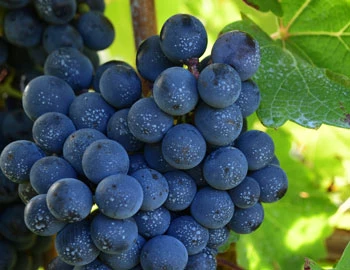
Merlot
Everybody’s darling
Merlot is the most charming member of the Bordeaux family. It shines with rich colour, fragrant fullness, velvety tannins and sweet, plummy fruit. It even makes itself easy for the vintner, as it matures without issue in cool years as well. This is in contrast to the stricter Cabernet Sauvignon, which it complements as a blending partner. Its good qualities have made the Merlot famous worldwide. At over 100,000 hectares, it is the most-planted grape in France. It also covers large areas in California, Italy, Australia and recently in Eastern Europe. The only catch is that pure Merlot varieties rarely turn out well. Its charm is often associated with a lack of substance. Only the best specimens improve with maturity. They then develop complex notes of leather and truffles. This succeeds in the top wines from the Bordeaux appellation of Pomerol and those from Ticino, among others.
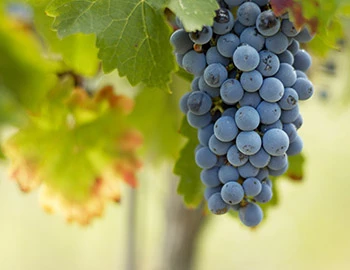
St-Estèphe
Saint-Estèphe: classic, full of vim and vigor
Thanks to their prominent acidity and robust tannins, the wines of Saint-Estèphe are considered absolute classics of the Médoc. The distinct profile of these wines is owed to the particular terroir. Saint-Estèphe borders Pauillac, and is the northernmost of the four famous communal appellations of the Médoc. At the appellation’s best-known châteaux, Cabernet Sauvignon is the leading variety, but there are also producers here whose assemblages incorporate Merlot for the starring role.
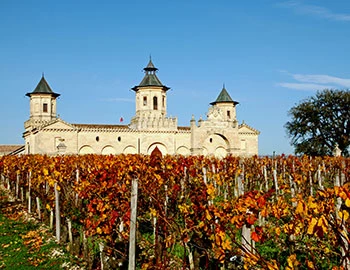
Bordeaux
Bordeaux: high prestige, high quality
With a total area of around 115,000 hectares, Bordeaux may not be France’s largest wine-growing region, but it is certainly its most prestigious. The range of wines produced here today is enormous: ranging from red everyday wines with a great relationship between price and quality to exclusive, and accordingly expensive, premier crus. Elegant white wines and noble sweet specialties round out the spectrum.
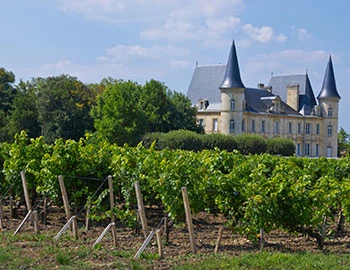
France
France – Philosophy in a bottle
According to French philosophy, wine should be an expression of the soil and climate. They use the word “terroir” to describe this. Terroir makes every wine different, and many especially good. French wine is regarded worldwide as an expression of cultural perfection. The French believe that humans are responsible for the quality of the berries, the vine variety for their character, and nature for the quantity. This philosophy can be expressed succinctly as: “the truth is the vineyard, not the man.”
